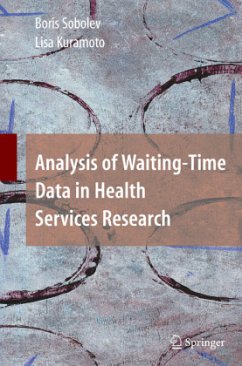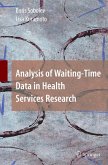In health care systems that provide universal access to care, efforts to contain costs for standby hospital capacity usually result in wait lists for surgical procedures. When access to health care is rationed by such wait lists, the length of time that patients are required to wait is usually uncertain. This uncertainty is a natural product of stochastic variation in service time and in the percentage of urgent cases in any queuing system. However, in a queue for elective (nonemergency) procedures, waiting-time uncertainty has many additionalcauses. Forinstance,decisionsofbothpatientsandcareprovidersmayoverrideaqueuediscipline. Alternatively, the lack of a hospital resource, such as beds in the intensive care unit, may change queuing practices in favor of services that would not require the resource. Waiting time is often compared between regions, hospitals, periods, or surgical services to evaluate p- icy and performance. However, surprisingly little attention has been given tothe variation in times spent in a single queue. Why some patients wait longer than others remains an important question in health services - search. Itisunclear,forexample, whether timetoservicevariesmorethanwouldbeexpected throughchance alone after differences in clinical condition are taken into account. Another important issue is preferential allocation of hospital resources. It also remains unclear whether patients of low priority are admitted directly as a way to circumvent long wait lists or to substitute for cancellations on the operating room schedule.
From the reviews: "Sobolev and Kuramoto ... offer fellow researchers a guide to methodology for studying how long patients in a universal health-care system wait for elective or other non-emergency surgery. In addition to providing statistical tools, they set out the entire research process, from framing the question to interpreting results." (SciTech Book News, June, 2008)








